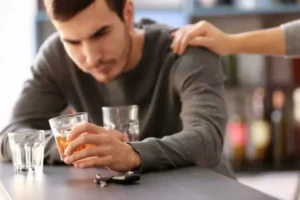
Consulting a treatment center and entering a medically supervised detox program significantly reduces the risk of relapse, thus lowering the likelihood of withdrawal-induced epilepsy. Doctors have discovered several medications that can reduce the urge to drink as an alcohol-dependent individual’s body adjusts to sobriety. Early symptoms of alcohol withdrawal include tremors, headache, insomnia, palpitations, irritability, anxiety, nausea, loss of appetite, excessive sweating, high blood pressure, and rapid heart rate. More serious symptoms include confusion, hallucinations, seizures, and delirium. Alcohol seizures can range in severity from mild to severe and can even be life-threatening in severe cases. That’s why it’s important to seek professional help and undergo a how does alcohol withdrawal cause seizures medically supervised alcohol detoxification.
Alcohol misuse and epilepsy

Since alcohol causes inhibitory effects on your brain, your brain may produce fewer of its own inhibitory effects. It may also increase excitatory effects in an attempt to balance brain chemistry. Once your brain chemistry has adapted to alcohol, you’ll feel the effects of chemical imbalance when you go several hours without a drink.

Delirium Tremens (DTs)
- However, people who are on antiepileptic drugs may have a lower tolerance for alcohol.
- Alcohol withdrawal symptoms are a part of alcohol dependence syndrome and are commonly encountered in general hospital settings, in most of the departments.
- For most patients, relapses and remissions are very common following addiction to drugs and alcohol.
- The risk of seizures during alcohol withdrawal is influenced by various factors, including the severity and duration of alcohol misuse, previous history of seizures, and individual susceptibility.
- Recognizing these symptoms is vital, as alcohol seizures can lead to further complications and require immediate medical intervention.
- These changes have a kindling effect, meaning they act as a kindle and trigger seizures during subsequent withdrawal episodes.
The Alcohol withdrawal Syndrome (AWS) is one of the most common presentations of Alcohol Dependence Syndrome. AWS is a cluster of symptoms which occurs in alcohol-dependent people after cessation or reduction in heavy or prolonged alcohol use. The clinical presentation varies from mild to severe and the onset of symptoms typically occurs a few hours after the last alcohol intake.
What are the recommendations for alcohol use with epilepsy?
Alcohol withdrawal seizures are similar to tonic-clonic seizures, which are often seen with issues like epilepsy. The drug addiction treatment first may involve a loss of consciousness with increased muscle rigidity. The second phase involves rapid tightening and relaxing of the muscles, which involve convulsions that can lead to serious injuries. Your body is adaptable, and your brain chemistry will adjust to alcohol’s presence over time.
Addiction Treatment at The Recovery Village Cherry Hill at Cooper

In fact, studies have found that in 40-50% of adults who present to emergency departments or are admitted to hospital with https://ecosoberhouse.com/ new-onset seizures, the seizures are related to alcohol abuse. Now that we better understand how alcohol consumption and withdrawal are linked to seizures, let’s map out the steps we can take to prevent them and maintain our well-being. In the following sections, we will explore the link between alcohol and seizures in more detail, including how alcohol affects the brain and the different types and characteristics of alcohol-related seizures. A high fever, hallucinations, and heart disturbances are all reasons to seek immediate help.

However, if you’re experiencing some of these symptoms, it could also mean you are about to experience a potential symptom that is particular to alcohol withdrawal called delirium tremens. However, alcohol, along with other depressants, is among the most dangerous substances during the withdrawal phase, especially if you quit cold turkey. The overstimulating effects of alcohol withdrawal can lead to increased blood pressure, heart palpitations, sleeplessness, fever, hallucinations, panic, and seizures. Alcohol withdrawal delirium DT is a medical emergency and requires indoor treatment and monitoring. Brain imaging may be undertaken in suspected cases of neurological insult.
- There are many potential triggers for someone who is prone to seizures.Flashing lights, especially repetitive on and off or patterns, may trigger a seizure.
- You should discuss this risk with your doctor and follow instructions carefully.
- Signs and symptoms of an alcohol use disorder include a preoccupation with alcohol consumption and continuing to drink despite the negative effects of alcohol.
- Long-term management may involve antiseizure medications such as phenobarbital or gabapentin to maintain stable brain activity.
- Since alcohol causes inhibitory effects on your brain, your brain may produce fewer of its own inhibitory effects.
- Day et al., concluded that STR is acceptable to both patients and staff and is potentially a useful technique for busy acute psychiatric wards 53.

Drinking every once in a while and even heavy drinking on the weekends may not lead to chemical dependence on alcohol, although it could lead to other dangerous consequences. Dependence is a chemical response to the consistent presence of alcohol in your brain and body. Mayo-Smith and Saitz and O’Malley formulated a treatment regimen in accordance with CIWA–Ar score severity 24,51. According to these authors, patients with mild withdrawal symptoms (i.e., CIWA–Ar scores of 8 or less) and no increased risk for seizures can be managed without specific pharmacotherapy. Successful non-pharmacological treatments include frequent reassurance and monitoring by treatment staff in a quiet, calm environment. Patients who experience more severe withdrawal (CIWA-Ar scores ≥ 8) should get pharmacotherapy to manage their symptoms and lower the risk of seizures and DT’s.